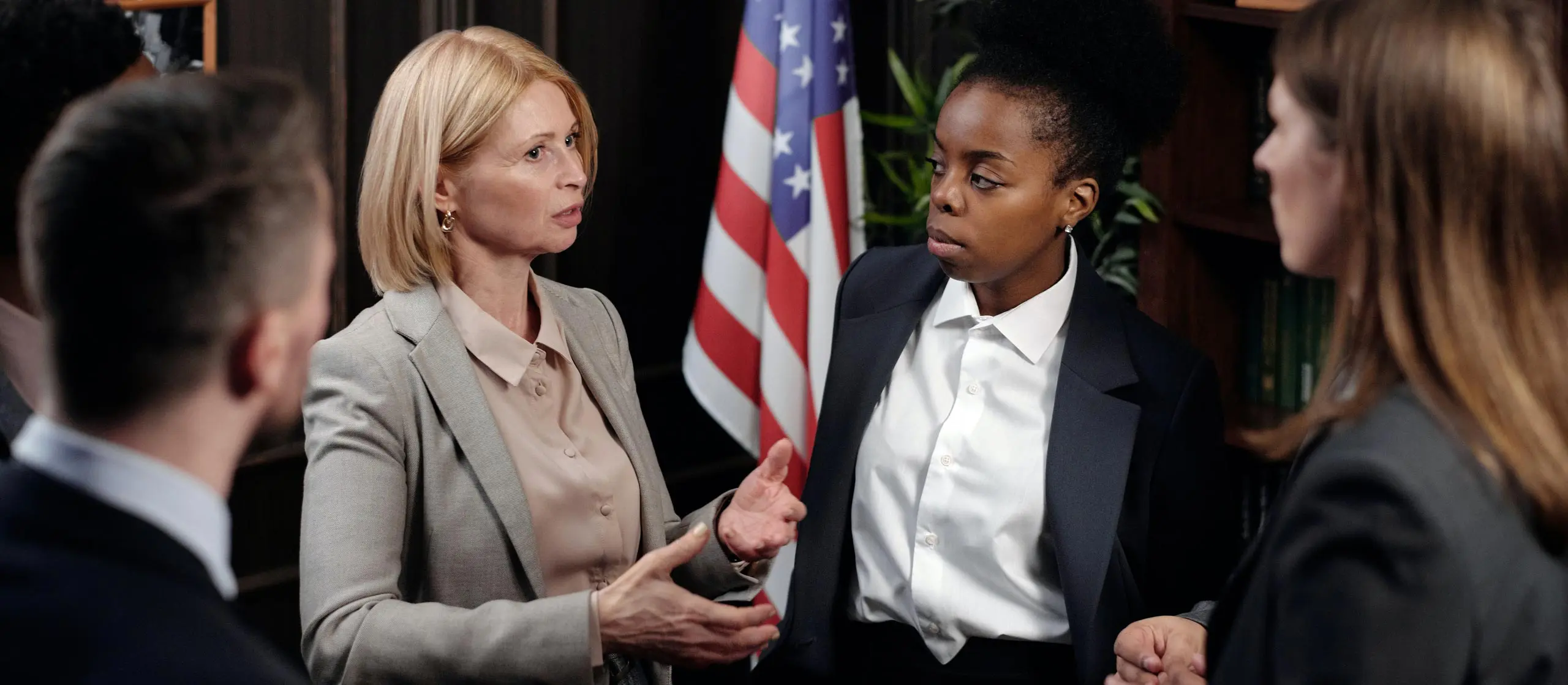Protective Order Domestic Violence
California Domestic Violence Laws
Penal Code Section 273.5 is that statute that criminalizes the type of conduct that counts as “domestic violence” [web link]. This type of violence is typically committed against an adult or minor who is a current or former spouse, cohabitant, former cohabitant, or is having or has had a dating relationship. Since “domestic” violence often occurs in private spaces or within the privacy of a home, there are usually few witnesses and sometimes very little proof of what actually happened. Unfortunately, this can produce false accusations and unwarranted criminal charges. Often times, the complaining witness involved in a domestic dispute may seek protection provided by the court. In this section we will explain the various types of protection orders the court may impose.
What is a protective order in California?
A protective order is an order a judge makes to protect a complaining witness from further and future physical harm or harassment that has been alleged. In other words, it tells the defendant to stay away from the other person. In a domestic violence case, the courts often consider and frequently impose protective orders. Protective orders can be very restrictive and they can be issued on very little proof. A report of violence or imminent violence from the alleged victim could be enough to trigger a protective order, forcing you to stay a certain distance from the other party and even move out of your home.
A protective order can prevent you from:
- Entering your own or the alleged victim’s property
- Contacting them, directly or indirectly
- Seeing them in any private or public place.
Generally, protective orders in domestic violence cases fall into two (2) different categories:
- Emergency Protective Orders
- Criminal Protective Orders
• Do Not Harm, Annoy, or Molest Order (“NO-HAM”)
Both are serious because they can restrict your freedoms in important ways. For instance, it is not uncommon for the defendant and complainant in a domestic violence case to live together, so a protective order might force you out of your own house. A protective order can also prohibit you from having any communication with the other party, even through intermediaries (a third party).

Emergency Protective Order (“EPO”)
An emergency protective order is a protective order that is meant to be issued quickly and often after a domestic violence arrest or investigation. This type of protective order can be issued whether or not court is in session, and although judges are available 24/7 to issue EPO’s, an EPO can only be issued based on an application by law enforcement — the complaining witness cannot get one themselves. An EPO can be just as restrictive as any other protective order, but it is supposed to last for a short period of time, five (5) business days or seven (7) calendar days, whichever is shorter.
When is an EPO issued?
- There is immediate and present danger of DV based on a person’s allegation of a recent incident of abuse or threat by the defendant.
- Child is in immediate and present danger of abuse by a family or household member based of allegations of recent threat or abuse by family or household member.
- Child is in immediate and present danger of being abducted by parent or relative based on an allegation of recent threat to abduct from jurisdiction, OR
- Elder or dependent adult is in immediate and present danger of abuse based on allegation of abuse or recent threat of abuse.
Notice that in some cases, an EPO can be based on an allegation that violence occurred, or that it will occur. A judge does not need proof of both in order to issue an EPO in a domestic violence case.
If you are facing domestic violence charges or if you have been arrested for domestic violence, you might already have an EPO issued against you. You should consult an attorney as soon as possible to discuss your options, as the allegations leading to an EPO could lead to a criminal protective order (“CPO”).
Criminal Protective Orders
A Criminal Protective order (“CPO”) is an extended protective order. A CPO can be just as restrictive as an EPO, but it can last much longer. Under a CPO, a judge can order you to refrain from harming, threatening, or even contacting or coming within a certain distance of the alleged victim in a domestic violence case.
California Penal Code Section 136.2 allows a judge to issue a CPO based on a good finding of “good cause”, such as when, “harm to or dissuasion or intimidation of a victim or witness has occurred or is likely to occur.” Notice again, that the judge does not need to be convinced that you are CURRENTLY a threat to the alleged victim or that you plan to dissuade or intimidate them. A “good cause” belief that you previously harmed or threatened the alleged victim (which usually forms the basis for a domestic violence charge itself) can form the basis of a CPO.
A CPO can last up to ten (10) years. They can even last after the case is resolved and you have completed a sentence. Since CPOs are so frequent in domestic violence cases, and because the Penal Code requires judges to at least entertain the possibility of issuing them at various stages of a domestic violence case, it becomes crucial to figure out ways to challenge a CPO throughout the case and find ways to make it less restrictive.
A do not harm, annoy, or molest order that is commonly called a “NO-HAM” is the least restrictive kind of CPO. It allows you to contact and remain in contact with the alleged victim, so long as all contact remains peaceful and you do not “harm, annoy, or molest” them. If a CPO looks inevitable in your case, getting it downgraded to a “NO-HAM” is usually a good result.
What if the other party does not want a restraining order?
The court can still issue one anyway. California law says that, at various stages of a domestic violence case, the court “shall” consider issuing a protective order “on its own motion”. This means that the court, not the alleged victim, decides whether a protective order shall be in place. While the alleged victim does have the right to be heard on this issue, the court does not necessarily have to abide by their wishes.
The other party does not want to press charges. Will my case be dismissed?
Unfortunately, not always. Similar to protective orders, the alleged victim does not get the “final say” on whether charges go forward. A criminal case is not like a civil case where private parties bring claims against each other in court. A criminal case is brought when the district attorney or prosecutor, a public employee, decides to bring charges based on information that they receive. The DA decides whether charges will be brought—not the alleged victim.
Although the alleged victim in a domestic violence case has the right to refuse to testify, this can cause some problems with the prosecution’s case, but it does not necessarily lead to a dismissal. Sometimes, the prosecutor could still try to prove the charges against you without live testimony from the alleged victim.
Some examples include:
- Physical evidence
- Statements that you may have made
- Third-party eyewitnesses who may have witnessed the events and will say that you assaulted the alleged victim
- Statements that the alleged victim made out of court while under certain circumstances
However, an uncooperative complainant might tend to make the case against you weaker, so you and your attorney should explore these issues thoroughly to see just exactly HOW the government might try to mount their case against you.
Consequences of violating a Protective Order in California
A violation of a protective order while your domestic violence case is pending could be punished separately as contempt of court, or as a violation of California Penal Code section 273.6. Also if you are alleged to have violated a protective order while your domestic violence case is pending, the court might consider revoking your bail and ordering you to stay in custody while your case continues. When facing domestic violence charges or violation of of a protective order in California, be sure to discuss all possible consequences of a conviction with your attorney.
Clips of Counsel: Watch and Learn
“Daniel Vaswani, lead attorney at Virtuoso Criminal and DUI Lawyers, explains the complicated process of a DUI arrest and the importance of hiring the right lawyer.”
“Attorney Joe McPeak from Virtuoso Criminal and DUI Lawyers discusses important defense strategies for domestic violence cases.”
“Discover how speaking with an attorney just days before your court date can dramatically impact your chances of release.“
We are Available



